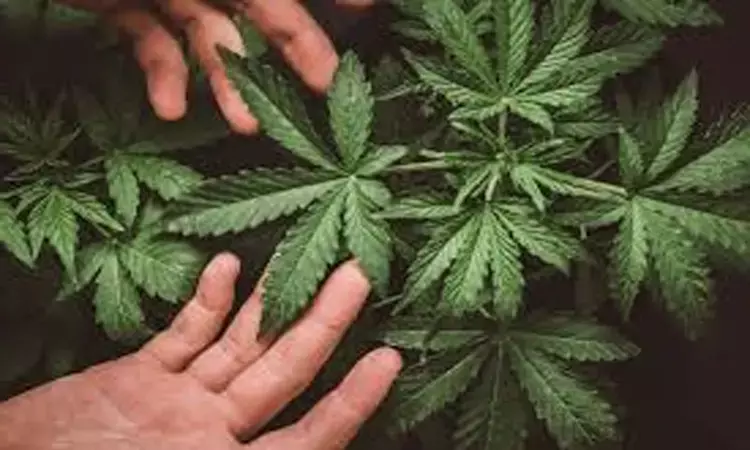- Home
- Medical news & Guidelines
- Anesthesiology
- Cardiology and CTVS
- Critical Care
- Dentistry
- Dermatology
- Diabetes and Endocrinology
- ENT
- Gastroenterology
- Medicine
- Nephrology
- Neurology
- Obstretics-Gynaecology
- Oncology
- Ophthalmology
- Orthopaedics
- Pediatrics-Neonatology
- Psychiatry
- Pulmonology
- Radiology
- Surgery
- Urology
- Laboratory Medicine
- Diet
- Nursing
- Paramedical
- Physiotherapy
- Health news
- Fact Check
- Bone Health Fact Check
- Brain Health Fact Check
- Cancer Related Fact Check
- Child Care Fact Check
- Dental and oral health fact check
- Diabetes and metabolic health fact check
- Diet and Nutrition Fact Check
- Eye and ENT Care Fact Check
- Fitness fact check
- Gut health fact check
- Heart health fact check
- Kidney health fact check
- Medical education fact check
- Men's health fact check
- Respiratory fact check
- Skin and hair care fact check
- Vaccine and Immunization fact check
- Women's health fact check
- AYUSH
- State News
- Andaman and Nicobar Islands
- Andhra Pradesh
- Arunachal Pradesh
- Assam
- Bihar
- Chandigarh
- Chattisgarh
- Dadra and Nagar Haveli
- Daman and Diu
- Delhi
- Goa
- Gujarat
- Haryana
- Himachal Pradesh
- Jammu & Kashmir
- Jharkhand
- Karnataka
- Kerala
- Ladakh
- Lakshadweep
- Madhya Pradesh
- Maharashtra
- Manipur
- Meghalaya
- Mizoram
- Nagaland
- Odisha
- Puducherry
- Punjab
- Rajasthan
- Sikkim
- Tamil Nadu
- Telangana
- Tripura
- Uttar Pradesh
- Uttrakhand
- West Bengal
- Medical Education
- Industry
Inhaled cannabis may reduce PTSD symptoms by half in short term: Study

PULLMAN, Wash. – Researchers at Washington State University have found in a new study that in people suffering from post‑traumatic distress disorder cannabis use can temporarily relieve symptoms related to post-traumatic stress disorder, but notes that it may not be an effective treatment in the long term.
The study has been published in Journal of Affective Disorders.
Many individuals use cannabis to manage symptoms of post-traumatic stress disorder (PTSD), and evidence indicates that the endocannabinoid system represents a viable target for treating these symptoms.
Cuttler and her colleagues analyzed data of more than 400 people who tracked changes in their PTSD symptoms before and after cannabis use with Strainprint, an app developed to help users learn what types of medical cannabis work best for their symptoms. The group collectively used the app more than 11,000 times over a 31‑month period.
The study shows cannabis reduced the severity of intrusions, returning thoughts of a traumatic event, by about 62%; flashbacks by 51%, irritability by 67%, and anxiety by 57%. The symptom reductions were not permanent, however.
"The study suggests that cannabis does reduce symptoms of PTSD acutely, but it might not have longer term beneficial effects on the underlying condition," said Cuttler. "Working with this model, it seems that cannabis will temporarily mask symptoms, acting as a bit of a band aid, but once the period of intoxication wears off, the symptoms can return."
PTSD is a disorder affecting people recovering from traumatic events and impacts women at about twice the rate as men with a 9.7% to 3.6% lifetime prevalence, respectively. While therapy is recommended as the primary treatment, Cuttler said there is growing evidence that many people with PTSD are self-medicating with cannabis.
"A lot of people with PTSD do seem to turn to cannabis, but the literature on its efficacy for managing symptoms is a little sparse," Cuttler said.
This study provides some insight into the effectiveness of cannabis on PTSD symptoms, but as the authors note, it is limited by reliance on a self-selected sample of people who self-identify as having PTSD. Also, it is not possible to compare the symptom reductions experienced by cannabis users to a control group using a placebo.
While some placebo-controlled clinical trials have been done with nabilone, a synthetic form of THC, few have examined the effects of the whole cannabis plant on PTSD.
In this study, Cuttler and her colleagues looked at a variety of variables but found no difference in the effect of cannabis with differing levels of tetrahydrocannabinol (THC) and cannabidiol (CBD), two of the most studied constituents of cannabis. The results imply that it is some combination of THC, CBD and perhaps some of the many other parts of the cannabis plant that create the therapeutic effect. Cannabis has many molecules that can create a biological effect, including up to 120 cannabinoids, 250 terpenes and around 50 flavonoids.
"We need more studies that look at whole plant cannabis because this is what people are using much more than the synthetic cannabinoids," said Cuttler. "It is difficult to do good placebo-controlled trials with whole plant cannabis, but they're still really needed."
For further reference log on to:
Dr Kamal Kant Kohli-MBBS, DTCD- a chest specialist with more than 30 years of practice and a flair for writing clinical articles, Dr Kamal Kant Kohli joined Medical Dialogues as a Chief Editor of Medical News. Besides writing articles, as an editor, he proofreads and verifies all the medical content published on Medical Dialogues including those coming from journals, studies,medical conferences,guidelines etc. Email: drkohli@medicaldialogues.in. Contact no. 011-43720751


